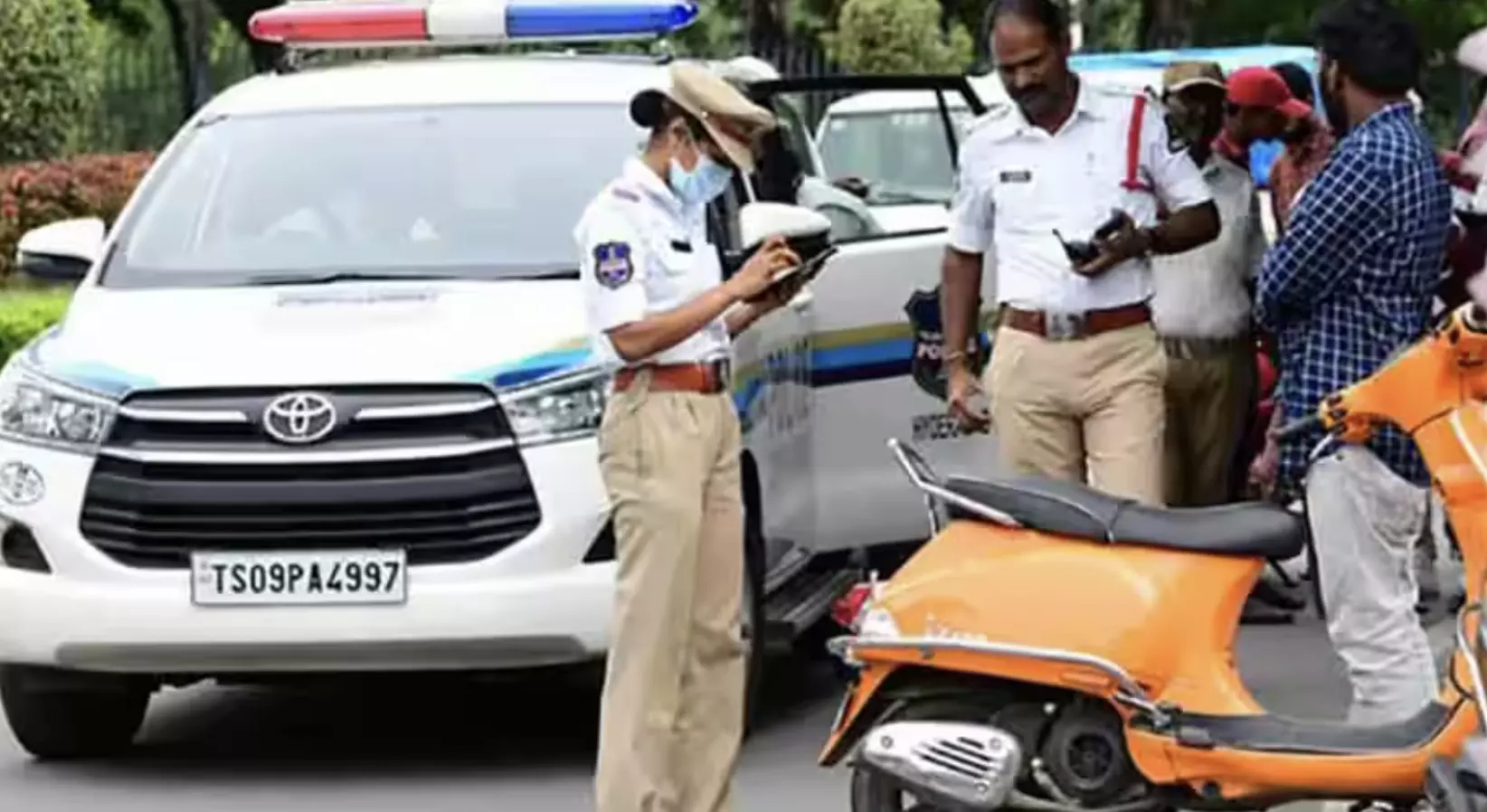Why Telangana is offering up to 90% discount on traffic challans?
The Telangana government has introduced a scheme to alleviate the burden of pending traffic challans, offering significant discounts on the original fines.
image for illustrative purpose

The Telangana government has introduced a scheme to alleviate the burden of pending traffic challans, offering significant discounts on the original fines. Launched on December 26, 2023, and set to run until January 10, 2024, the initiative provides a 60 to 90 per cent discount to individuals with outstanding traffic challans.
The government's notice cites the substantial backlog of e-challans in recent years, exacerbated by the challenges posed by the Covid-19 pandemic. The enforcement of both contact and non-contact measures resulted in a large number of traffic challans, creating a daunting task for clearing the accumulated pendency.
To address this issue, the government has implemented a tiered discount system. Two and three-wheeler vehicles are eligible for an 80 per cent discount, while Telangana State Road Transport Corporation (TSRTC) buses enjoy an even more substantial 90 per cent discount. However, the discount for light motor vehicles such as cars and heavy motor vehicles like trucks is set at 60 per cent.
The government justifies this initiative by acknowledging the financial constraints faced by many vehicle owners, particularly those with two-wheelers and three-wheelers, who find it challenging to pay fines that often exceed the value of their vehicles. Consequently, the government proposes to clear the substantial backlog of traffic e-challans by adopting specific criteria and offering discounts based on vehicle types.
The order, issued under the powers conferred by Section 200 of the Motor Vehicle Act, 1988, waives off fines immediately as a one-time measure. The discounts are applicable to fines imposed through e-challans that have not yet been paid by vehicle owners. The government aims to provide relief to citizens while simultaneously addressing the unprecedented pendency of traffic fines.

